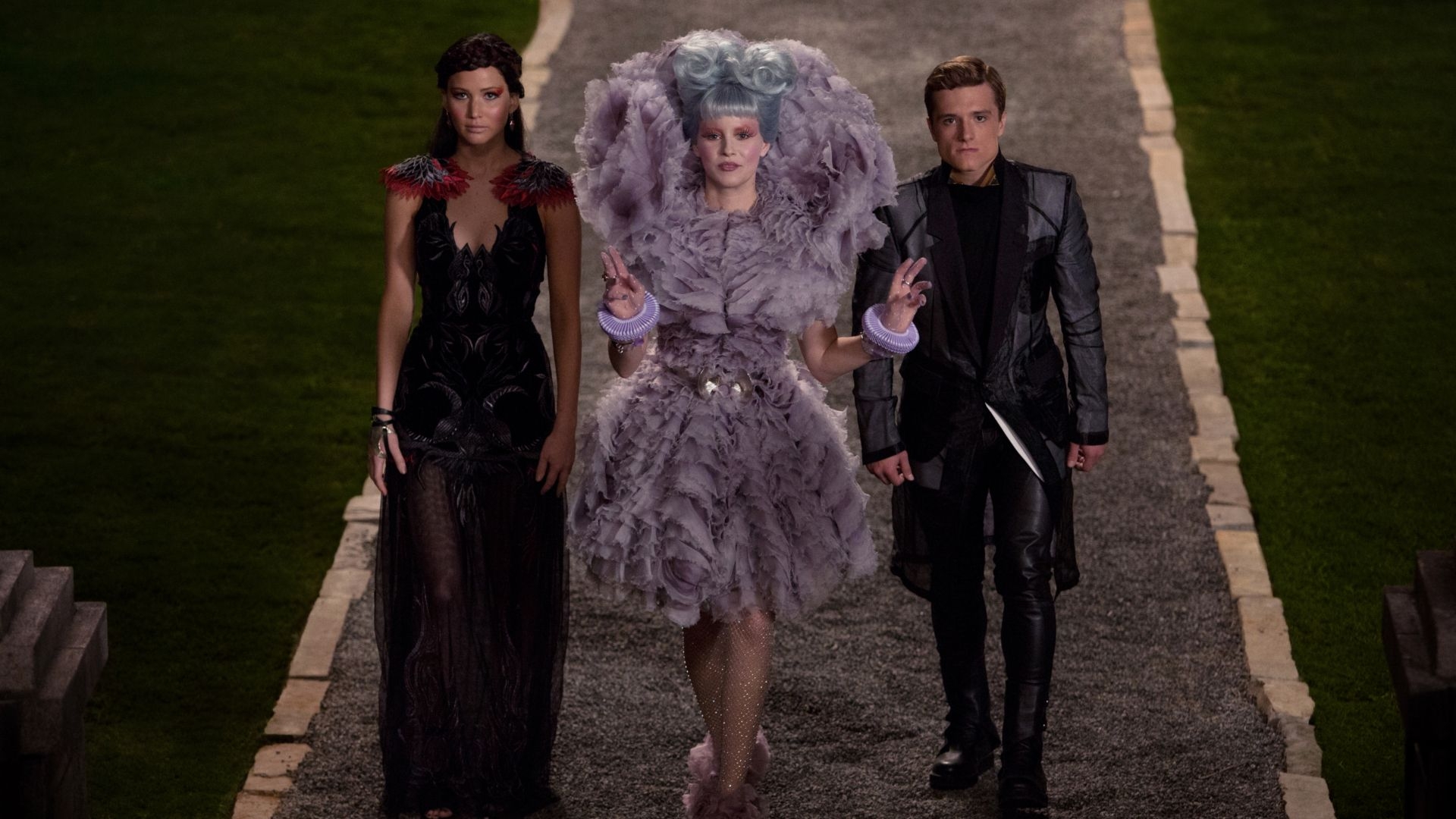'The Hunger Games: Catching Fire'
Jennifer Lawrence is so terrific in American Hustle, I can't quite believe I'm sitting here, at the end of 2013, about to explain why it wasn't her best performance of the year. That she managed to deliver it in The Hunger Games: Catching Fire -- of all things a franchise instead of an Oscar bait film with a critically acclaimed director -- is all the more remarkable. There's a symbiosis between Lawrence and The Hunger Games franchise. Lawrence's career would not have shot in to the stratosphere as it has over the last two years without starring as Katniss Everdeen, the feisty heroine of the series. And The Hunger Games would not be quite what it is without her version of Katniss, a portrayal that, two films in, has helped the franchise achieve the rare feat of eclipsing the novels from which they are adapted.
Catching Fire picks up months after Katniss and Peeta Mellark (Josh Hutcherson) managed to escape the arena as victors of the 74th Hunger Games. Survival has not brought either of them relief. Life is more comfortable on a superficial level -- Katniss does not have to worry about providing for her mother or her younger sister Primrose (Willow Shields) -- but nightmares of the violence they experienced in the arena haunt both her and Peeta.
The lovers' bluff that delivered them out of the arena continues to have consequences as well. The real-life relationship between the two has become strained, an unfortunate development given the pressure to keep up appearances applied directly by the insidious President Snow (Donald Sutherland). Katniss, without really meaning to and without her knowledge, has become a symbol of resistance in the 12 Districts, making the victory tour she and Peeta are about to embark on dangerous to the powers that be in Panem. That danger comes back around to Katniss and her family in the form of thinly veiled threats to their safety.
In stories like this, survival is supposed to make things simpler. Catching Fire does a particularly great job of poking holes in that idea. Like a returning soldier, complexity awaits her at every turn, compounded by her post-traumatic stress disorder. Complication after complication is thrust at Katniss -- still just a fragile teenager despite her tenacity -- culminating in the Quarter Quell, the 75th Hunger Games, which put Katniss and Peeta back in the arena for a second straight year along with other past victors.
Lawrence brings more depth to Katniss than is even to be found in Suzanne Collins' novels. Collins' Katniss comes off as more immature and whiny, whereas Lawrence's is naive, alternately delicate and fierce, ultimately easier to root for than her counterpart in the novel. Her performance adds urgency, desperation and palpable tension as she works with allies in the arena like Finnick Odair (Sam Claflin), Johanna Mason (Jena Malone) and Beetee Latier (Jeffrey Wright) to survive.
Katniss' arc is balanced by subterfuge and the growing unrest in Panem. Unlike the first film, that intrigue now cuts both ways. Snow, advised by new Gamesmaker Plutarch Heavensbee (Philip Seymour Hoffman), is bent on destroying Katniss as a symbol of resistance. But Katniss' childhood friend Gale (Liam Hemsworth) speaks openly of injustice and rebellion, and Haymitch (Woody Harrelson), Peeta, Katniss' new allies in the ring, even the stylist Cinna (Lenny Kravitz) work more in concert, more toward a grander goal than just keeping the Girl on Fire alive.
Even if you haven't read the books, it should be no surprise when these dueling storylines collide in the arena. What might be a bit of one is how neatly it all comes together, how smoothly director Francis Lawrence is able to propel this franchise in to a different realm -- one that is effortlessly compelling. It ought to make both hardcore fans of the novels and those with a more casual interest happy.

